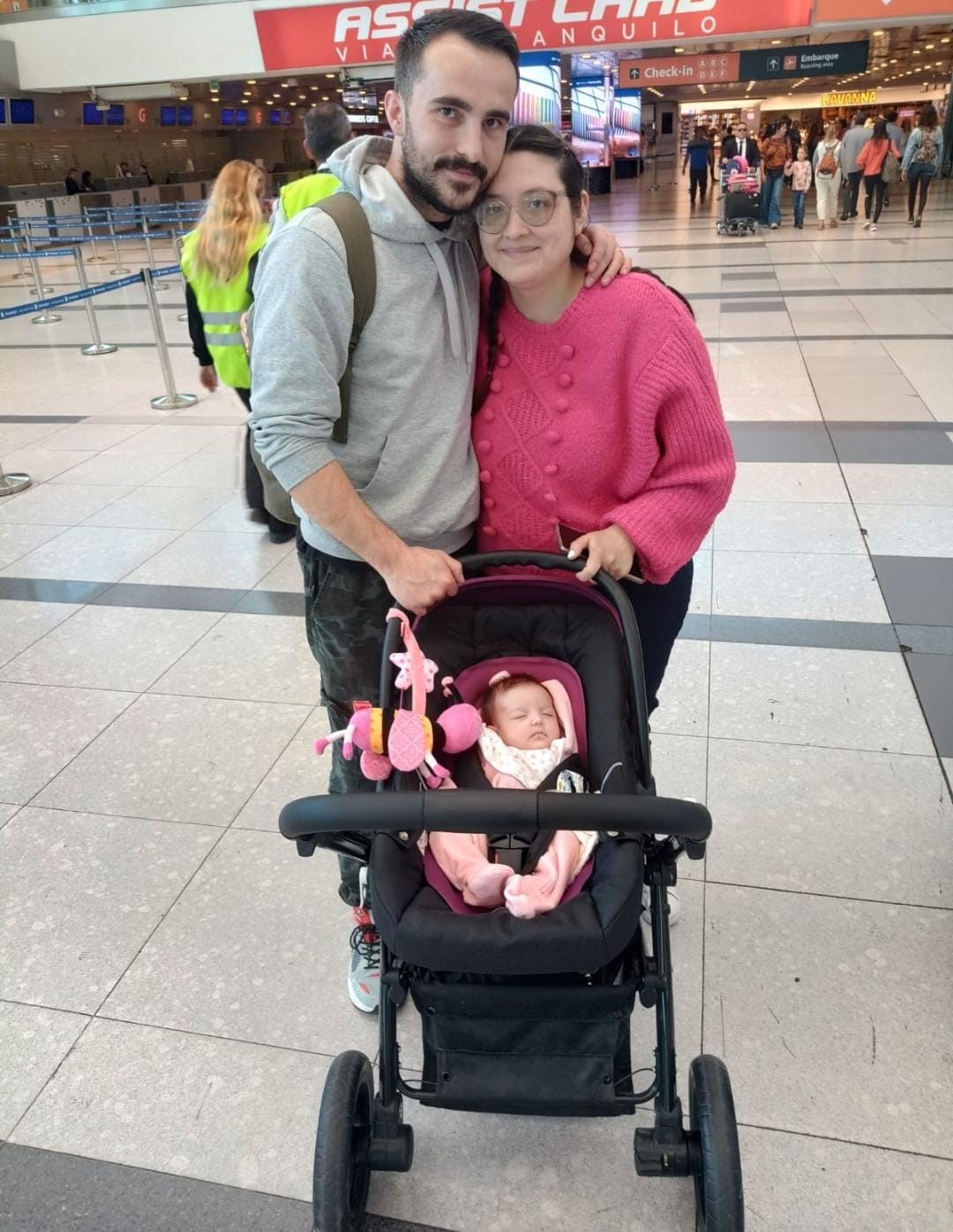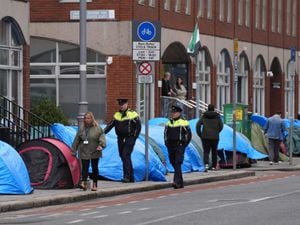Visa change destroying notion of UK as place for families, say campaigners
The minimum income for family visas rose to £29,000 on Thursday and will rise further to £38,700 by early 2025.

Changes to visa rules costing people thousands of pounds extra “destroy the notion of the UK as a place where families can thrive”, campaigners said as a new mother told of struggling with separation from her husband.
As the minimum income for family visas rose by more than £10,000 to £29,000 from Thursday, the organisation Reunite Families UK claimed the values of family and love are being treated as “as yet another political football to be sacrificed in order to receive better poll or electoral results”.
The measures, first announced in December, are part of what the Government has described as “an accelerated and comprehensive programme of reforms” to address “unsustainable” levels of legal migration to the UK.

The minimum income requirement will rise further to £38,700 by early 2025.
It had remained unchanged for more than a decade, and helps to ensure families are self-sufficient and not relying on public funds, whilst making a positive impact on the economy, the Home Office said.
But Argentinian Eugenia Morales said the uncertainty around her and her seven month-old baby daughter being able to reunite with her husband in the UK has taken a toll on her mental health.
The 30-year-old has been with her partner Connor White for three years but is unsure now whether, after having their daughter in her home country, she will be able to join him in England.
She said Mr White, who is based in West Sussex, cannot leave his eldest child from a previous relationship and has been working weekends in his construction job to try and boost his income to the required amount to sponsor his wife.
Ms Morales said she would be looking for a job in the UK and would not have access to benefits while applying on the family visa route anyway.
She told the PA news agency: “We don’t want to be a burden to the (welfare) system, we just want to be with our families.”
Describing the situation as “very hard”, she said: “It’s an awful situation. We want to be together, we want the girls to grow up together but this is making it totally impossible.”
Colin Whitley from Halifax, West Yorkshire, said he has been working six-day weeks to try to have enough money to sponsor his partner to join him in the UK from Iran.
The bus driver, 43, said the past few months have been “really stressful”.
He told PA: “Why should I, as a British citizen, be forced to leave the country which is my home to be together with the person I have fallen in love with? You cannot help who you fall in love with.”
He said the Government is “twisting in such a way to make people think that because we want to bring our partners here, they’re a burden to the taxpayer. But they’re not.”
He said his partner, who cannot live openly as a gay man in Iran due to the laws there, would work in the UK and contribute to the economy if he had the chance to move.
A Home Office blog addressing the question of whether the new rules could risk splitting up families notes a provision in immigration rules for exceptional circumstances if a refusal of a visa application is deemed to have unjustifiably harsh consequences.
But Caroline Coombs, co-founder of Reunite Families UK, said people are feeling “punished” and “excluded” by the new rules, with what counts as exceptional needing to meet “a very high bar”.
Ms Coombs said: “This increase, together with the ones which will come into force in the next 12 months destroy the notion of the UK as a place where families can thrive.
“We are dealing with a community of members who are punished and feel excluded and discriminated by their own government only because they fell in love with somebody from abroad and do not or cannot (for a variety of reasons including caring for children and/or elderly parents) earn the ‘right amount’ to be able to love whoever they choose.
“We long for the day when families and love in whatever form they come are recognised and praised as a value for our communities and society as a whole, and not another political football to be sacrificed in order to receive better poll or electoral results.”
Meanwhile the Migration Observatory at the University of Oxford has done analysis suggesting that between entering the UK on a temporary visa and becoming a British citizen, most migrants will pay cumulative fees of between £5,000 and £37,000, depending on the visa type and whether they have dependants.
This equates to an annual £2 billion income stream for the Home Office, it said.
Home Secretary James Cleverly said “mass migration” had reached a “tipping point”, adding: “There is no simple solution or easy decision which cuts numbers to levels acceptable to the British people.”
He said he had “promised action and we have delivered at remarkable speed”.
He said: “We’ve acted to cut unsustainable numbers, to protect British workers and their wages, to ensure those bringing family to the UK do not burden taxpayers, and to build an immigration system fit for the future – and one the public can rightly have confidence in.”
The Government said the minimum income requirement can also be met through savings or, if the applicant is in the UK already on a different visa, through their additional income.





